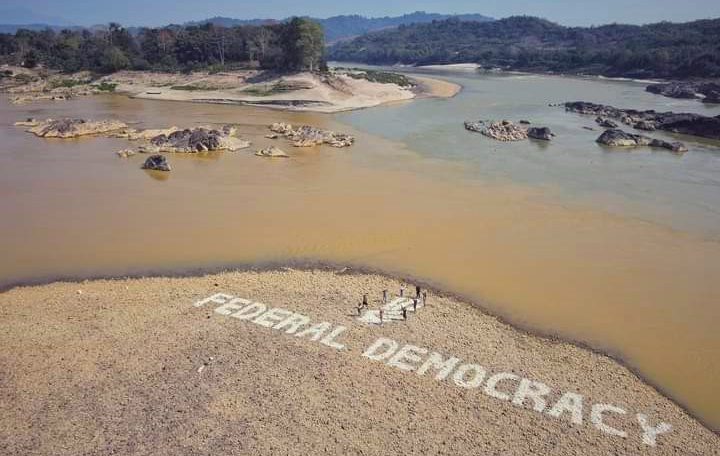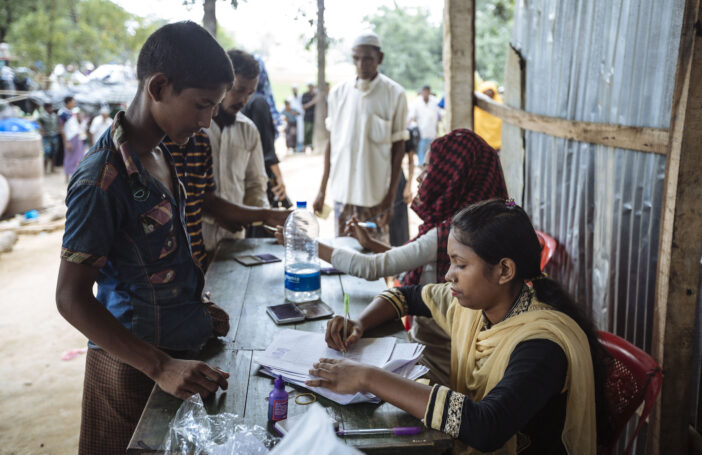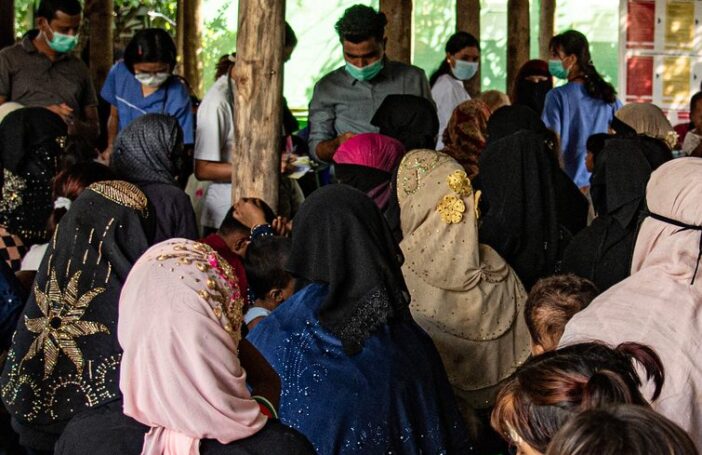Western donors have struggled to respond effectively to Myanmar’s burgeoning civil war, which has left the central state in tatters and rendered many existing aid structures largely irrelevant.
Yet with the military state retreating across much of the country, Australia and like-minded countries have a unique opportunity to restore their relevance to Myanmar’s future development by supporting parallel state-building in newly “liberated areas”.
Myanmar’s existing, military-led state has failed spectacularly. Yet, in areas outside of the military’s reach, the contours of a new – and better – state are taking shape amidst the chaos of the civil war.
Across the country, varied resistance groups are claiming authority to govern significant liberated territories and populations. They are establishing parallel government institutions; pronouncing new laws and policies; and delivering public services to millions of people. While some of this is still fairly rudimentary, they are effectively building proto-states (or, potentially, “federal units”).
The best-known of these new political authorities is the National Unity Government (NUG), which was founded by elected members of parliament who escaped arrest after the 2021 military coup to act as a parallel government. Yet, while the NUG plays a critical role in challenging the legitimacy of the junta, its authority on the ground is limited to Bamar majority areas and at times contested by local resistance groups even there.
Elsewhere, in ethnic minority areas, long-standing ethnic armed organisations and new regional councils are establishing their own governments, with the explicit aim of governing their traditional homelands in a future, loose federal union.
Rather than having one parallel government, Myanmar today has several parallel governments, each claiming authority in different parts of the country.
This patchwork of political authorities may seem chaotic to outsiders but is emblematic of the new Myanmar that is emerging from the disruption of the civil war. It might well be a blessing in disguise.
While many Westerners in particular are looking to the NUG to provide a familiar model of centralised, democratic governance, over-centralisation has been the bane of Myanmar since independence and the root cause of decades of violence and poverty.
Importantly, while none of the other political authorities have the formal democratic legitimacy that the NUG does, many of them enjoy strong popular support in their own areas due, mainly, to their practical efforts to protect and support local communities.
As such, they are prime examples of a phenomenon that Ashley South has called “emergent federalism” where federalism grows organically from the bottom up in the absence of a national, constitutional settlement.
Given the varied systems of governance in different areas, there is no one-size-fits-all model for international assistance. Yet, support for parallel state-building can be broadly conceived as involving four conceptually distinct but practically intertwined pillars.
First, emergency aid. Local communities across Myanmar are in dire need of traditional humanitarian assistance in the form of food, water, and shelter, as well as more development-oriented support for health, education, and livelihoods. Much of this work is currently carried out by community-based organisations which require continued – and indeed increased – support. However, by funnelling at least some of the funding through responsible, higher-level political authorities, donors can help them further strengthen their relationships with local communities and build legitimacy by serving local needs.
Second, institution-building. Myanmar’s parallel political authorities require help to establish formal government institutions and build effective administrative systems across key areas, such as economic and natural resource management, as well as health and education. Aid for institution-building could involve anything from policy advice to training and budget support.
Third, peace support. While Myanmar’s varied resistance groups share a common enemy in the military, tensions exist between many of them over the distribution of local authority, resources, and territory – and these are only going to intensify once negotiations begin in earnest to agree on more fundamental constitutional issues. It is vital therefore to help build further mutual trust and develop common ground on core policy issues, at both the national and local level.
Finally, the fourth pillar is modelling core values. Not all Myanmar’s new political authorities are equally deserving of support. Some groups are less progressive than others. Given the potential of international aid to affect the power balance between different groups, it is imperative that all aid is used to support positive models of governance. This is not a call for returning to the old ways of mindlessly seeking to replicate Western institutions in a context where they are at best irrelevant and could do more harm than good. The core principle of all support for parallel state-building should be to help facilitate structures that are already developing organically. But priority must be given to supporting efforts to build inclusive, civilian-led structures that respect basic human rights and international humanitarian law.
International support for parallel governments presents both practical and political challenges for many donors whose default position is to work through the central state. Working with non-state armed groups is a particularly sensitive issue for most.
But Myanmar’s current military government is deeply illegitimate, and the ongoing fragmentation of authority across the country is likely to remain a key feature of any future state, whatever the outcome of the civil war.
Any meaningful effort to help the Myanmar people therefore requires increased engagement with the varied political authorities who are governing increasingly large parts of the country. We need a radically new aid paradigm for Myanmar, focused on parallel state-building in areas outside of central state control.





Great piece, Morten. I’d love to think we have the courage and capability to act as you suggest, but I doubt it. We’re a middle power determined to be weak, except in unrealistic rhetoric and military posturing. Still, all things must pass. Good to have ideas and alternatives if ever we get back to energetic, constructive, international engagement.